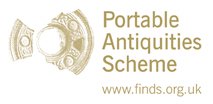Server check!
You are on the training database
The Kingdom of Northumbria
Principal investigator: Liam
Level: PhD level research
Northumbria was formed primarily from Bernicia and Deira's unification. Later expansion resulted in Northumbria extending from the Humber to the Firth of Forth and from coast to coast. Despite this appearance of a unified kingdom, clear divisions seem to have existed within Northumbria. Certain regions, such as western Northumbria and Deira have an abundance of artefacts such as imported Mediterranean pottery, glass and coinage whilst others have virtually none. The distribution of different sculptural monuments within Northumbria also indicates regional groupings rather than widespread adoption throughout the kingdom. Items of personal adornment appear in greater numbers with a much greater variety of types in certain parts of Northumbria. Bernicia, the area north of the Tees, is especially lacking in such evidence. My research explores the underlying causes for this uneven distribution of evidence and what it suggests about the level of connectedness and integration in Northumbria. Ultimately, I aim to answer the question of whether or not Northumbria can be classified as a unified kingdom.
Access to a Portable Antiquities Scheme Research Account would allow me to include more PAS data in my project as I would be able to use locational data only available to researcher accounts. Without this information, many items have locational data that isn't specific enough to plot on a map and so would have to be left out of the project. By including this extra data, I would develop a clearer of the level of integration and connectedness in Northumbria at the time. I am a current first year PhD student in the Department of Archaeology at Durham University. I aim to have my project completed in 2021.
Referee: David Petts (Durham University)
Audit data
- Created: 5 years ago
- Created by: S M


